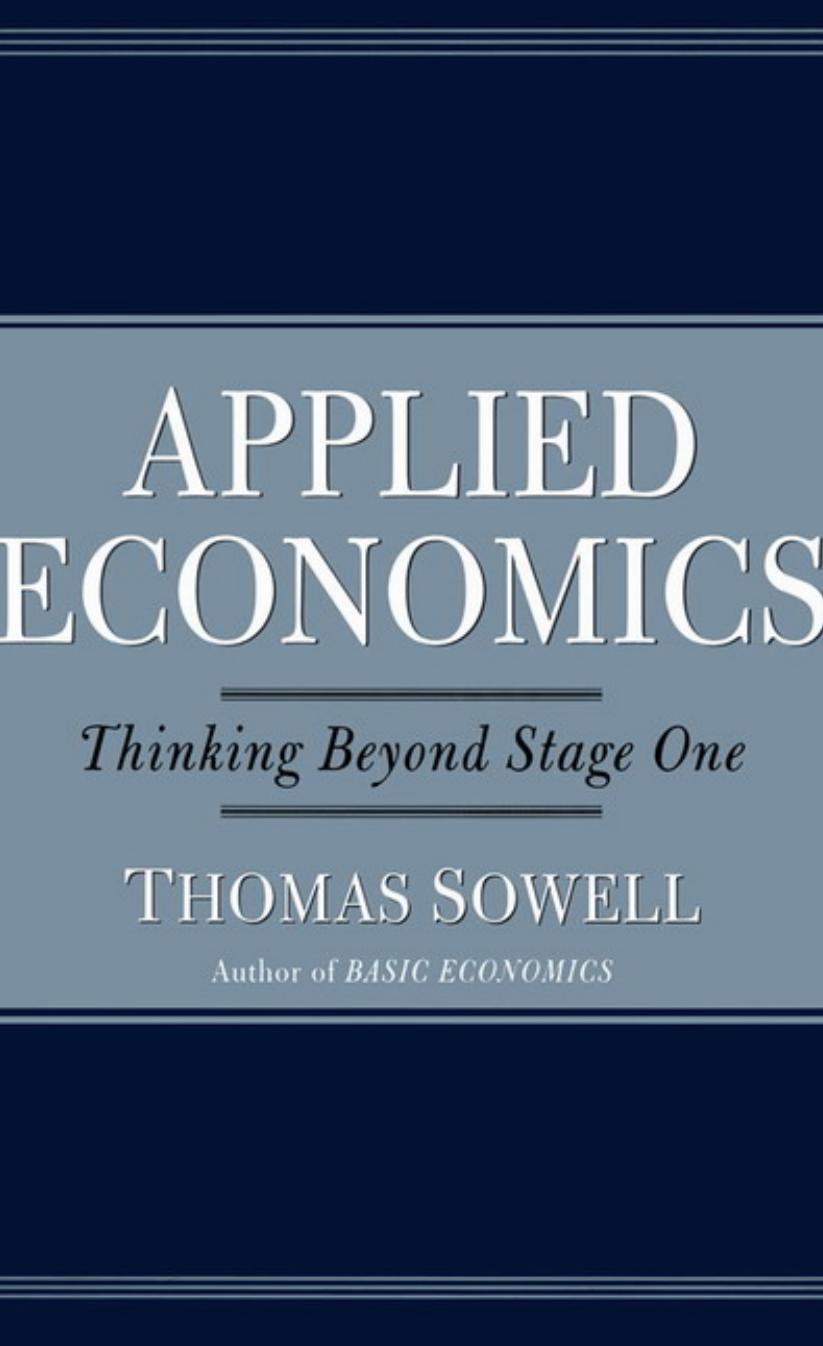Applied Economics: Thinking Beyond Stage One by Thomas Sowell

Author:Thomas Sowell [Sowell, Thomas]
Language: eng
Format: epub, pdf
Tags: Unabridged Audio - Business, Business, Economics, Economics - General, Business & Investing, General, Professional, Business & Economics
ISBN: 9780786172269
Publisher: Blackstone
Published: 2004-07-15T04:00:00+00:00
However plausible such laws and policies might seem to those who do not think beyond stage one, the net result of preventing local businesses from recovering the higher local costs in the prices they charge is likely to be a reduction in the number of businesses that can earn as much locally as elsewhere—or that can even earn enough to survive locally. Given the existing meager availability of businesses in many low-income neighborhoods, anything that forces more local businesses to close aggravates the problems of the people living there.
Banco Popular, which operates a check-cashing service in low-income Hispanic neighborhoods, has charged 1.1 percent of the value of the checks it cashes, plus 20 cents a check. This means that someone earning $300 a week pays $3.50 per week to get a paycheck cashed. Meanwhile, someone earning ten times as much money probably pays nothing, since banks are happy to have high-income people among their customers and make money off the large savings accounts and checking accounts which such people typically have, while the dangers of default are less. For the low-income worker, the question is whether taking a bus or taxi to try to get a paycheck cashed will cost more than the $3.50 paid to Banco Popular, which has armored cars that drive up to the employer's place of business on pay day.
While Banco Popular's check-cashing service charges for what many banks provide free, it also takes bigger risks of losses. The workers who cash their paychecks may be honest and the checks
genuine, but some of the employers they work for are small fly-by-night operators, who may suddenly leave town, closing their bank accounts and taking their money with them, making their workers' paychecks worthless. Just one such dishonest employer cost Banco Popular $66,000 in cashed paychecks that could not be redeemed at the bank where the employer s account had been closed before he skipped town. That is far less likely to happen with a paycheck from someone who earns $3,000 a week than with someone who earns $300 a week. Little fly-by-night operators are unlikely to be paying their employees $156,000 a year. People with such high incomes are more likely to be working for more substantial and reliable businesses and organizations.
The risks and costs of cashing checks for low-income people, or lending money to them, are inherent in the circumstances, rather than in the particular institutions which handle these risks. When a reputable bank that normally serves middle class or affluent people opens an affiliate in low-income neighborhoods, it faces those same risks—but without as much experience in dealing with them. Operating in what is called the "subprime market"—where borrowers do not have as good credit ratings as in the prime markets—these banks, as the Wall Street Journal put it, began "to realize that the market was far tougher than they had expected." Even charging interest rates ranging from 12 percent to 24 percent in making riskier loans to low-income borrowers—compared to 7 or 8 percent on other loans—the higher rates of default often made these loans unprofitable.
Download
Applied Economics: Thinking Beyond Stage One by Thomas Sowell.pdf
This site does not store any files on its server. We only index and link to content provided by other sites. Please contact the content providers to delete copyright contents if any and email us, we'll remove relevant links or contents immediately.
International Integration of the Brazilian Economy by Elias C. Grivoyannis(107827)
The Radium Girls by Kate Moore(12012)
Turbulence by E. J. Noyes(8014)
Nudge - Improving Decisions about Health, Wealth, and Happiness by Thaler Sunstein(7689)
The Black Swan by Nassim Nicholas Taleb(7097)
Rich Dad Poor Dad by Robert T. Kiyosaki(6595)
Pioneering Portfolio Management by David F. Swensen(6280)
Man-made Catastrophes and Risk Information Concealment by Dmitry Chernov & Didier Sornette(6001)
Zero to One by Peter Thiel(5782)
Secrecy World by Jake Bernstein(4736)
Millionaire: The Philanderer, Gambler, and Duelist Who Invented Modern Finance by Janet Gleeson(4457)
The Age of Surveillance Capitalism by Shoshana Zuboff(4272)
Skin in the Game by Nassim Nicholas Taleb(4232)
The Money Culture by Michael Lewis(4186)
Bullshit Jobs by David Graeber(4177)
Skin in the Game: Hidden Asymmetries in Daily Life by Nassim Nicholas Taleb(3986)
The Dhandho Investor by Mohnish Pabrai(3750)
The Wisdom of Finance by Mihir Desai(3726)
Blockchain Basics by Daniel Drescher(3571)
